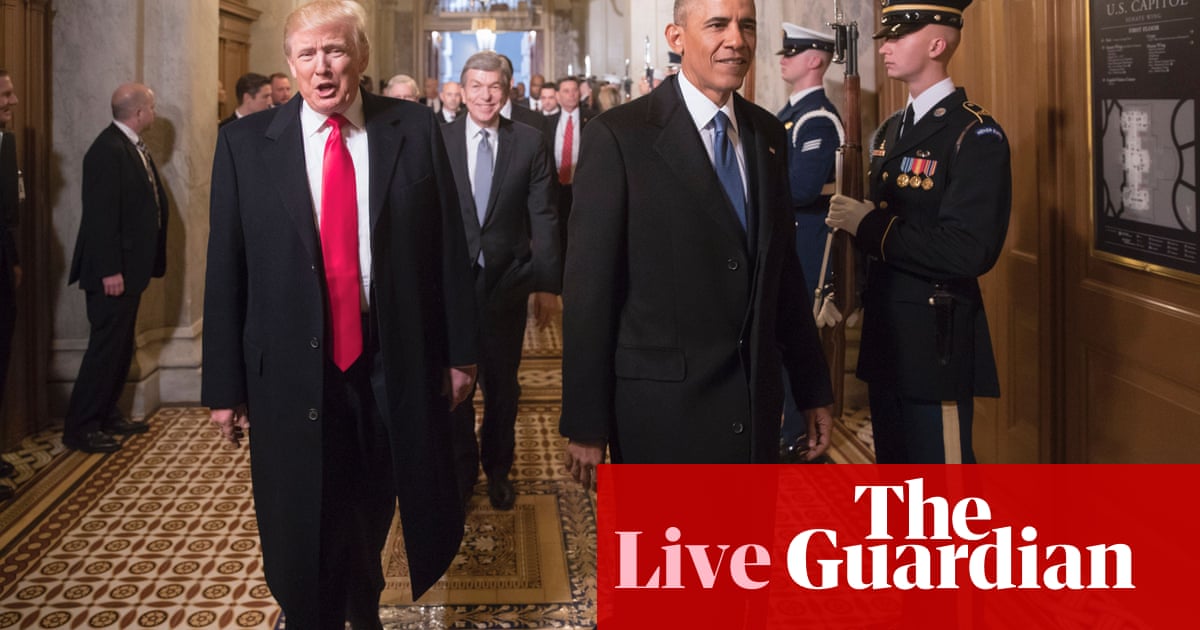The exemption of smartphones, laptops and other electronic products from import tariffs on China will be short-lived, top US officials have said, with Donald Trump warning that no one was “getting off the hook.”
“There was no Tariff ‘exception’, Trump said in a social media post on Sunday. “These products are subject to the existing 20% Fentanyl Tariffs, and they are just moving to a different Tariff ‘bucket.’”
In the post on his Truth Social platform, Trump promised to launch a national security trade investigation into the semiconductor sector and the “whole electronics supply chain”.
“We will not be held hostage by other Countries, especially hostile trading Nations like China,” he added.
The White House had announced on Friday the exclusion of some electronic products from steep reciprocal tariffs on China. US stock markets were expected to stage a recovery after the announcement. Shares in Apple and chip maker Nvidia were on course to soar after tariffs on their products imported into the US were lifted for 90 days.
However, Trump’s commerce secretary, Howard Lutnick, said on Sunday that critical technology products from China would face separate new duties along with semiconductors within the next two months.
Lutnick said Trump would enact “a special focus-type of tariff” on smartphones, computers and other electronics products in a month or two, alongside sectoral tariffs targeting semiconductors and pharmaceuticals. The new duties would fall outside Trump’s so-called reciprocal tariffs on China, he said.
“He’s saying they’re exempt from the reciprocal tariffs, but they’re included in the semiconductor tariffs, which are coming in probably a month or two,” Lutnick said in an interview on ABC, predicting that the levies would bring production of those products to the United States. “These are things that are national security, that we need to be made in America.”
The world’s two largest economies have been locked in a fast-moving game of brinkmanship since Trump launched a global tariff assault that particularly targeted Chinese imports.
Tit-for-tat exchanges have seen US levies imposed on China rise to 145%, and Beijing setting a retaliatory 125% levy on US imports.
Trump’s back-and-forth on tariffs triggered the wildest swings on Wall Street since the Covid pandemic of 2020. The benchmark Standard & Poor’s 500 index is down more than 10% since Trump took office on 20 January.
After announcing sweeping import taxes on dozens of trade partners, Trump abruptly issued a 90-day pause for most of them. China was excluded from the reprieve.
The fallout from Trump’s tariffs – and subsequent whiplash policy reversals – sent shock waves through the US economy, with investors dumping government bonds, the dollar tumbling and consumer confidence plunging.
US senator Elizabeth Warren, a Democrat, criticised the latest revision to Trump’s tariff plan, which economists have warned could dent economic growth and fuel inflation.
“There is no tariff policy – only chaos and corruption,” Warren said on ABC’s “This Week,” speaking before Trump’s latest post on social media.
Beijing’s commerce ministry had said Friday’s move to exempt some electronic products only “represents a small step” and insisted that the Trump administration should “completely cancel” the whole tariff strategy.
China has sought to strengthen ties with neighbouring countries amid the escalating trade war. Chinese president, Xi Jinping, will visit Vietnam on Monday as he begins a tour of south-east Asia.
With Reuters and Agence France-Presse

.png) 1 day ago
6
1 day ago
6













































